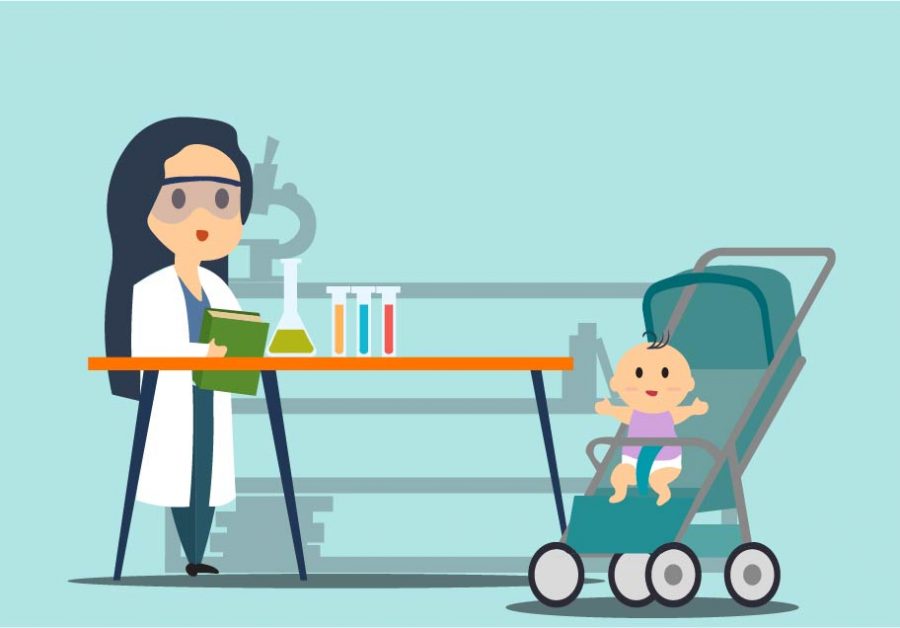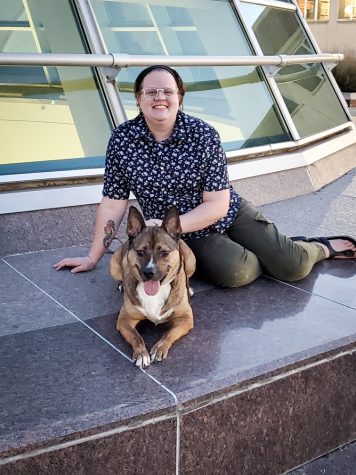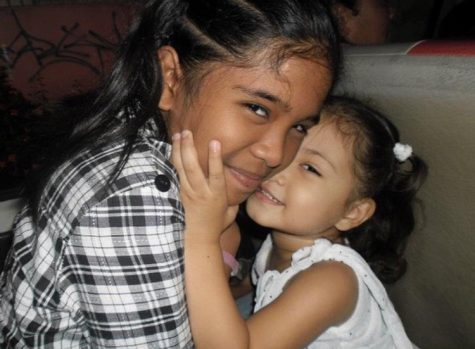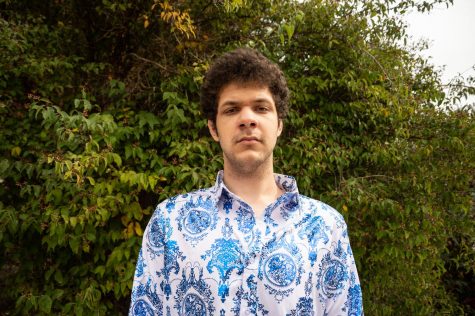Graduate student parents overlooked by university
Resources needed for graduate students not same for everyone
September 23, 2021
Rabia Khan, fifth-year doctoral student in electrical engineering, has changed since she first began her studies at WSU.
“When I started graduate school, I was more passionate than I am now. I wanted to learn everything, be focused on research; studies were my priority,” Khan said. “But since I got married, my priorities have changed. I do not have the same time or opportunities anymore.”
Does this have to be true? Can graduate students who are also full-time parents receive guidance and support in order to have similar opportunities like the rest of us?
A graduate student’s life is miles apart from an undergraduate’s. They are in a different time of their lives — with more personal struggles, inherent expectations to be financially and mentally independent. Some even have the responsibilities of a family.
Given the stresses these situations can impose, in addition to the “good-old grad school institutional pressure,” I do not think we should remain discrete about our non-work life in graduate school.
“My most important issue currently is time management — the major guilt I have about not giving enough time to my baby and also the counterpart guilt of not being fully involved and giving 100 percent to my research work,” Khan said.
Nearly 40 percent of graduate students in the U.S. admit to not being satisfied with their work-life balance, according to a 2019 Nature survey.
It is hard to find a balance when you are not shown how.
I believe WSU should actively provide resources to the “non-conventional” graduate students. Webinars or panel sessions with people with similar experiences in life could help them navigate situations like these — be it a young mother or an older candidate.
WSU’s Graduate and Professional Student Association should emphasize the importance of having a balanced personal and professional life through their activities.
“Other graduate students take a break when they get back home. We don’t. By the time we are home, our kid is back from childcare and he deserves 100 percent attention from us since he was deprived of it all day,” said Nuzhat Yamin, second-year doctoral student.
As a parent, it is really hard juggling between the responsibilities of personal and professional lives. Most of the time, the boundaries between the two are almost non-existent.
“At the end of the day, we are completely out of energy, but we still manage to do that because, of course, there is no other choice,” Yamin said.
Can being more open about these struggles to the academic setting and taking breaks in between help? Can we teach everyone in academia to be more empathetic and approachable individuals?
As a graduate student myself, I feel like a failure when I cannot meet a work deadline because of personal reasons. I want to break the stereotype in my head that I can be a successful graduate student only if school is my one and only priority.
“If WSU could impose a policy on finite workload to graduate students … we can manage accordingly and divide time for work and family,” Yamin said.
About 76 percent of the graduate students report to work 41+ hours per week. Most graduate students across the country can only get paid for under 20 hours per week and are expected to work 40+ hours per week, according to the Nature survey.
This disparity in pay and workload causes serious dissatisfaction and financial burdens. As graduate students and early-career researchers, we need help; we cannot master the skill of navigating all of these experiences alone.
WSU should provide access to resources like academic counselors, parents’ working groups and financial advisers to graduate students — especially graduate student parents across the university.
Currently, access to these kinds of resources is either nonexistent or very limited.
Neglecting friends and family for a few years is not plausible, given school is only a part of our careers and a very small part of our lives.
In order for WSU to be a more inclusive and considerate place for graduate students, we need to be open and talk about the “conventional” and “non-conventional” graduate student issues and provide access to resources to help maintain a healthy personal and professional lives.

















